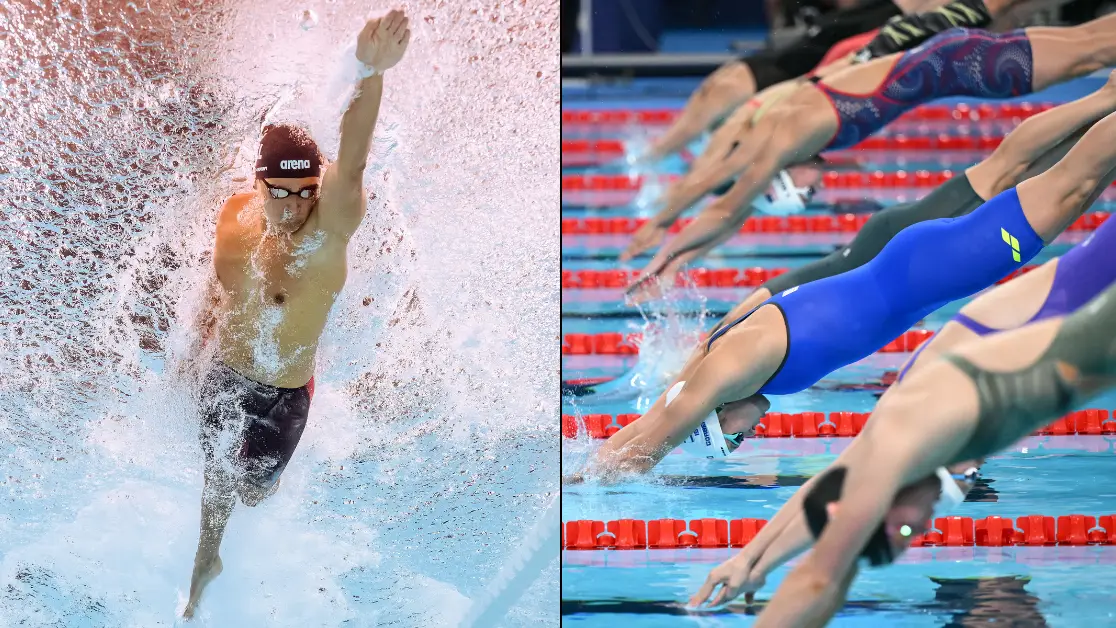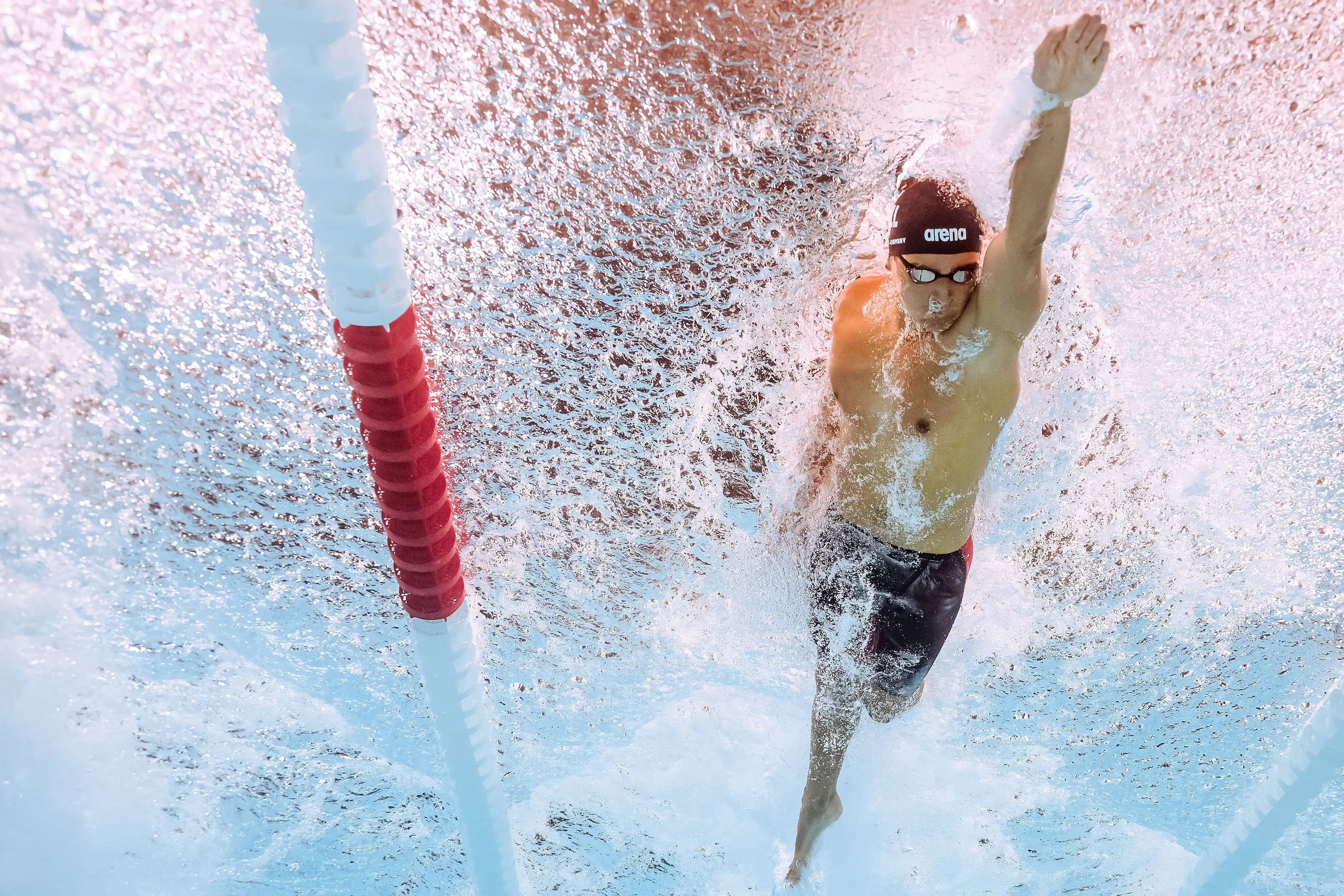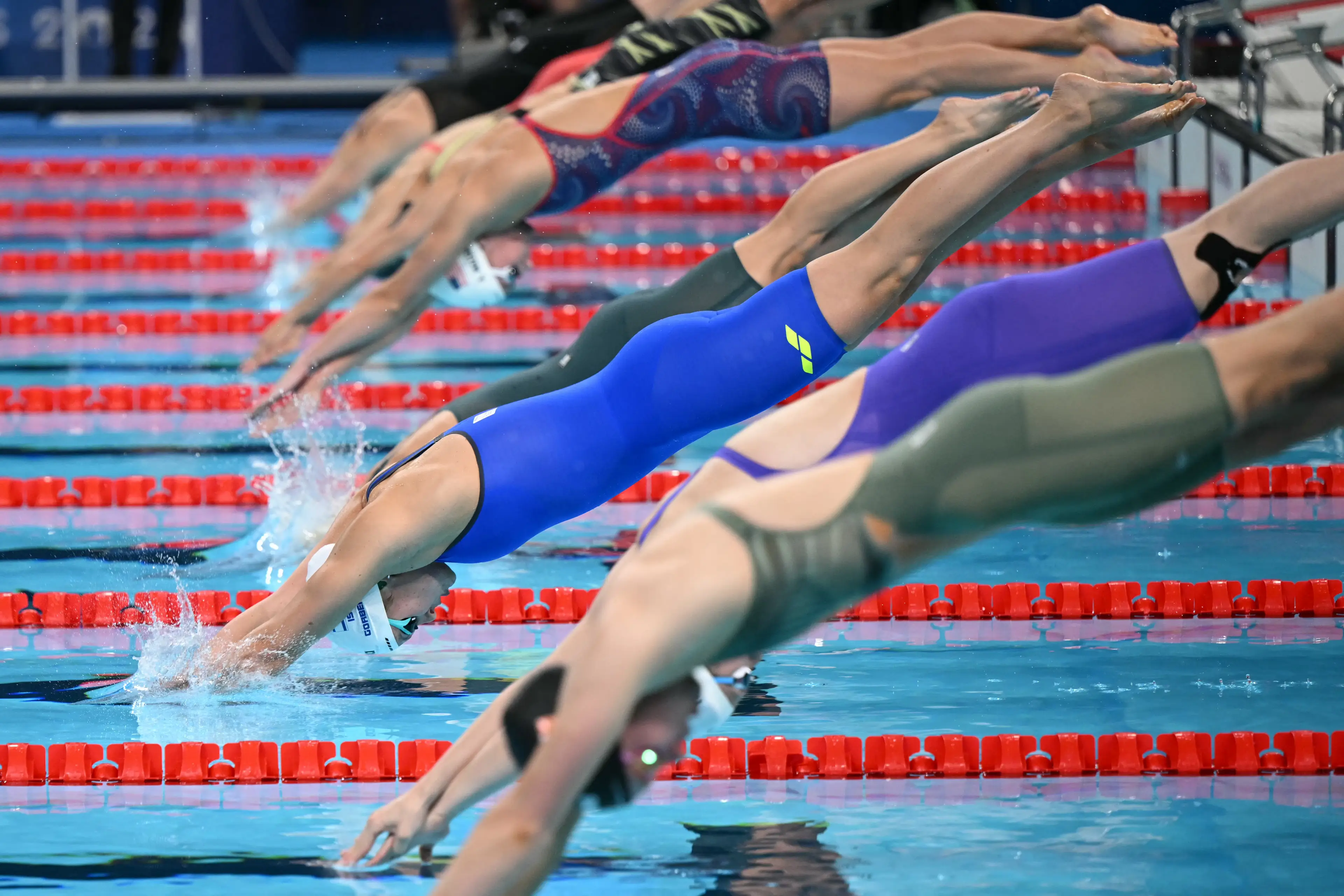
As well as hoping to earn a coveted spot on the podium at the Paris 2024 Olympics, athletes are also hoping to outdo their opponents even further by breaking world records.
And with the talent on display in the French capital at the moment, you'd think contenders would be setting new ones left, right and centre - however, only one has been busted in the swimming sector so far.
Chinese swimmer Pan Zhanle broke the 100m freestyle world record with a time of 46.4 seconds.
Advert
I mean, it's better than none... but seen as though swimmers achieved six record-breaking feats at Tokyo 2020 and eight at Rio in 2016, competitors have massively fallen short of their previous benchmarks.
It's even left sporting fans wondering whether the pool at Paris' La Défense Arena has something to do with it - as due to it's lack of depth, it can trigger an issue known as 'slow' swimming.
This is where the water is more volatile when dispersed than in a deeper pool, resulting in choppier waters as there is more chance of waves and water bouncing off of the floor due to it being closer.

Team GB star Jacob Whittle, who recently came fifth in the Men's 100m Freestyle and Men's Freestyle Relay, said the pool at La Défense Arena was 'a bit like swimming in the sea'.
But the chief executive of the Italian company that constructed the pool, Roberto Colletto, insisted there was 'no problem' with it, so it's still up in the air as to whether this is the reason for the world record drought.
And sadly, this shortage is having a knock-on effect on an old school industry.
This is thanks to a bizarre rule that swimmers must follow if they set a new world record during a race in the Olympics.
Apart from a few workplaces and offices, fax machines are pretty much extinct in the modern world - however, they reportedly remain an essential cog in the wheel for athletes when they beat a record on the world's biggest sporting stage.
For their record-breaking achievement to be recognised, swimmers are said to submit it via fax for it to be verified by the sport's governing body, World Aquatics, which was formerly known as FINA.
Old habits die hard, I guess.

There are plenty of other barmy rules which are in force at this year's Olympics too.
For example, boxers are required to be clean-shaven or have minimal facial hair, gymnasts are forbidden from wearing any vibrant nail polish and BMX riders have to tuck in their shirts.
Other strange regulations include the fact that wrestlers have to carry a handkerchief in case they need to mop up any blood, while water polo players are required to have their toe nails checked to prevent them scratching any competitors.
I warned you they were pretty weird.
But according to Dom Aldworth, a brand marketing expert at Gambling Zone, there is a method behind the madness.
He explained: "The Olympics captivate a global audience by showcasing the pinnacle of human athletic achievement and fostering a unique sense of global unity and sportsmanship.
"The diverse range of sports ensures something for everyone. Rules play a crucial role in maintaining the integrity of the Olympics. They ensure safety, allowing athletes to perform at their best without undue risk.
"Regulations promote discipline and respect, while upholding fairness provides a level playing field. This combination of safety, discipline, and fairness is essential for athletes and viewers alike, making the Olympics a cherished global event."
Topics: Olympics, Sport, Technology, Weird